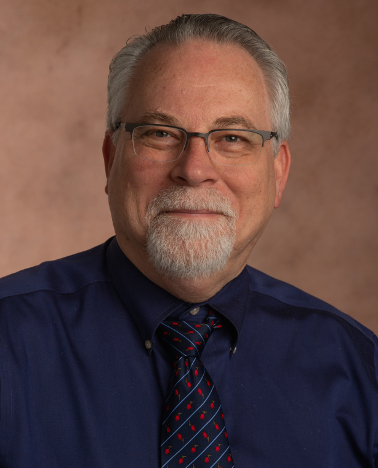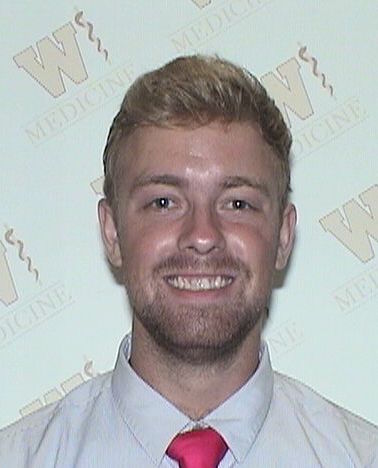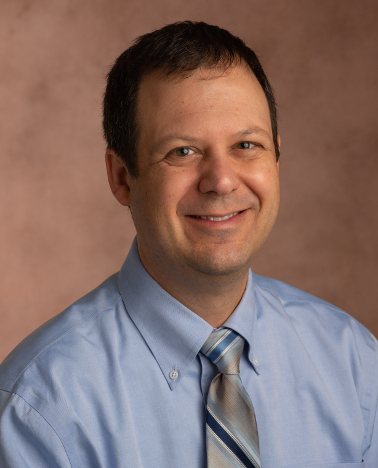
As she navigates her final year at WMed, Sarah Khalil has been working closely with a former resident and faculty at the medical school on the development of a new, reusable surgical pen that is more sustainable and cost-effective than the one-time pens currently in use throughout the U.S.
Khalil, Dr. Jorge L. Weber Guzman, and Dr. Robert G. Sawyer and Sandra Cochrane, chair of the medical school’s Department of Surgery and assistant dean for the WMed Innovation Center, respectively, began their project in April.
Now, thanks to a $9,860 award from the WMed Pilot Research Project Support Program, the team is hard at work on the development of a prototype of the new surgical pen.
“I think, in terms of the seed funding from the medical school, it’s great for us because now we have the ability to do some design work to see what the pen will look like,” Khalil said. “I think that the idea that a student, resident or faculty member can come up with a really neat idea and have the resources to develop it, expand upon it and optimize it is really awesome.”
The development of the surgical pen prototype is among more than a dozen projects that have received funding from the medical school’s Pilot Research Project Support Program since the 2017-2018 academic year. Dale Vandré, PhD, WMed’s associate dean for Research, oversees the program and said close to $80,000 in grant money has been awarded for work by faculty from the Center for Immunobiology, the departments of Biomedical Sciences and Emergency Medicine, and the Program in Medical Ethics, Humanities and Law, among others.

Dr. Vandré said the Pilot Research Project Support Program was implemented to support internal research at the medical school with the aim of engaging students and residents in projects that have the potential to garner extramural funding.
“What I’d like to see are outcomes that result in additional funding,” Dr. Vandré said. “That’s the gold standard. Additionally, we want these projects to result in publications for the principal investigators and our students.”
Khalil said her work with Cochrane and Drs. Sawyer and Guzman began thanks to Dr. Sawyer who was looking to engage a student and resident in medical device innovation project. She said she and Dr. Guzman came up with the idea for a new surgical pen, one that would be more sustainable and cost-effective than what surgeons currently use.
Khalil said current surgical pens can only be used one time. The pen’s purple ink also wipes away too easily during surgery preparation and is often hard to see on patients with darker complexions. With all of that in mind, Khalil said the team is working to develop a pen featuring better ink, a reusable handle and disposable tip.

“We think that if we can optimize the design the pen will be cheaper and result in less waste,” Khalil said. “Just in the U.S. there are 48 million inpatient surgeries a year and a pen is used in the vast majority of those procedures.”
Khalil said her work on the development of the new surgical pen has been an eye-opener for her.
“This has been awesome for me because I did not know all of these outside resources existed,” she said. “It’s easy to say, ‘I’m a student, I’m here to study and that’s it,’ but that’s not true. Medical students do a lot of observing and sometimes we can identify problems that others can’t. The idea that if you see a problem and you come up with a solution and there’s a way to implement it, that’s pretty neat.”
The engagement of students like Khalil in research at WMed has been – and continues to be – a focus and goal of the medical school.
Dr. Vandré said WMed’s most recent Research Day in May 2018 featured more than 300 authors on poster and oral presentations. That figure included 77 students and 78 residents, he said.

Additionally, WMed students have been listed as an author or co-author on numerous journal articles, according to annual Scholarly Publications reports compiled by the WMed Medical Library.
In 2016-2017, students were listed as authors on 13 journal articles and one book chapter. The following year, students were listed as authors on more than 30 journal articles. So far, for 2018-2019, students have been listed as authors on nine journal articles.
In addition to journal articles accepted for publication, students’ work is leading to poster presentations at Research Day, as well as national conferences, including the Experimental Biology annual meeting.
In 2018, second-year student Aaron Zebolsky began working in the lab of Erik Larson, PhD, an associate professor in the Department of Biomedical Sciences on two projects examining the genetics of polycystic kidney disease. Both projects have received funding from the Pilot Research Project Support Program.
Zebolsky said the funding from the Pilot Research Project Support Program is supporting the experiments he and other students are doing along with Dr. Larson as part of their ongoing research.

“It really makes you think about every little step and you’re planning techniques,” Zebolsky said. “We’re learning how to deal with failure and how to look back at everything after something fails and learning from that.”
Dr. Larson said Zebolsky is among five medical students who are working with him in his lab at WMed on two projects aimed at understanding the genetic basis of PKD and the molecular events that prompt the gene inactivation that causes PKD. The research is also examining what kind of DNA sequences cause genetic instability, a question that Dr. Larson says goes beyond just PKD.
He said the students’ work has led to them being authors and contributing important data for presentations at national and international meetings, including the Experimental Biology annual meeting and the 2018 PKD National Meeting.
Dr. Larson said he is hopeful that the work being done with grant money from the Pilot Research Project Support Program will provide the preliminary data needed to secure extramural funding that will boost the continued work to understand more about PKD.
“Besides me, the students are the driving force right now and they’re heavily involved,” Dr. Larson said. “They’re gaining an understanding of molecular biology techniques, bioinformatics, and genome databases. This is something that is becoming more and more important in medicine, to gain a practical understanding of that is really valuable.”
Greg Vanden Heuvel, PhD, a professor in the Department of Biomedical Sciences, said he is appreciative of the Pilot Research Project Support Program and the work by the medical school to support the continued growth of research at the institution.
Like Dr. Larson, Dr. Vanden Heuvel has received two grants from the program for work in his lab that is examining a specific signaling pathway for PKD, as well as the development of a complex mouse model that he is hopeful will lead to funding from external sources like the National Institutes of Health (NIH).
The work around understanding the specific signaling pathway for PKD led to a research abstract that two WMed students will present in April at the Experimental Biology annual meeting in April in Orlando, Dr. Vanden Heuvel said.
“The students benefit because they gain an appreciation for how research is done, how drugs are developed, and ultimately, how medicine is advanced,” Dr. Vanden Heuvel said. “The students bring energy and creativity to the lab, and we’re able to make faster progress with more people involved. You never know where the research is going to go and that’s why I love it.”
